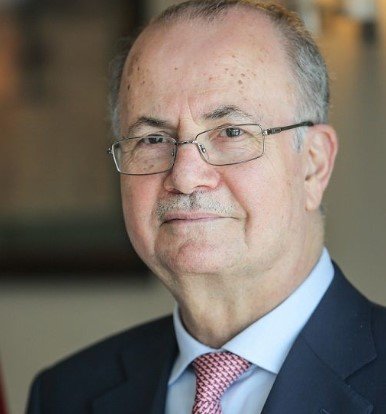European and Arab leaders call Israel’s war “inhumane” and demand open aid access to Gaza, fueling growing pressure on Netanyahu’s government.
With the death toll in Gaza mounting and aid trucks barely trickling in, Madrid became the latest political flashpoint in a war that has shaken alliances and global diplomacy. Leaders from across Europe, the Arab world, and even South America gathered on Sunday to issue a blunt and unified message: Israel must end its military offensive.
It wasn’t just another summit. Spain’s Foreign Minister, José Manuel Albares, opened the floor with sharp words, calling the war in Gaza “senseless” and “inhumane.” He warned that the international community could no longer afford silence—and hinted at sanctions.
Allies No More: Europe’s Tone Hardens
For decades, Israel has counted on steady support from Western Europe. But that narrative is changing fast.
France, Britain, Germany, and Italy—all of whom have long-standing ties with Israel—sent envoys to the Madrid meeting. And while their official rhetoric stopped short of direct condemnation, their presence alongside Arab countries spoke volumes.
One senior European diplomat put it bluntly off the record: “We’ve reached a point where humanitarian concerns are no longer theoretical. Children are starving, and it’s happening on our watch.”
Another sign of the shift? The participation of Ireland, Norway, Iceland, and Slovenia—countries that have already recognized a Palestinian state. They’re not waiting for Washington anymore.

Arab Delegates Draw a Red Line
The mood among Arab representatives was even more charged.
Jordan’s foreign minister called Israel’s siege “a deliberate strangulation.” Saudi Arabia’s envoy said what many others have avoided: that Israel’s military campaign is “designed to break—not Hamas—but Gaza’s people.”
And Egypt? They’re watching Rafah closely. After brokering ceasefires and prisoner swaps in the past, Cairo has now taken a visibly harsher stance.
-
Egypt, Saudi Arabia, Morocco, and Jordan are calling for:
-
An immediate ceasefire with international monitors.
-
Full access to aid shipments with no Israeli screening.
-
Reopening of key border crossings including Rafah and Kerem Shalom.
-
Consideration of sanctions if demands go ignored.
-
These aren’t just talking points. They’re ultimatums in disguise.
Spain’s Unfiltered Appeal: Gaza Is an “Open Wound”
Spain, the host of the summit, did not mince words.
Standing before cameras, Albares described Gaza as “humanity’s open wound,” demanding that aid flow into the strip “massively, without conditions and without limits.” He dismissed Israel’s control over entry points as an “obstruction” incompatible with international law.
He also made something else very clear: this isn’t just about aid anymore—it’s about accountability.
At one point, Albares hinted that sanctions should be “on the table,” especially if the offensive continues unchecked. That drew cautious support from some attendees, though others, like Germany and Italy, kept a more neutral stance.
This sentence stands alone.
But it speaks volumes about how far the Overton window has shifted.
What’s Actually Happening in Gaza?
While leaders met in air-conditioned halls in Madrid, Gaza remains in ruins.
More than 35,000 Palestinians have died since Israel’s offensive began last October, according to Gaza’s Health Ministry. The United Nations warns that over 70% of homes have been damaged or destroyed.
And then there’s the blockade. For nearly three months, Israel restricted fuel, food, medicine, and water from entering the territory. Though it has loosened restrictions slightly, the flow is minimal—aid workers say only about 150 trucks are entering daily, down from 500 before the war.
Aid agencies are calling this a “calculated starvation tactic.” Israel denies it. But the numbers don’t lie.
U.S. Absent, Brazil Steps In
Though it remains Israel’s strongest backer, the Biden administration didn’t send an envoy to Madrid. That left a vacuum others were more than willing to fill.
Brazil’s representative emphasized the need for a “global front against impunity” and praised the International Criminal Court’s decision to seek arrest warrants for both Hamas and Israeli leaders.
That comment didn’t go unnoticed.
Brazil, under President Lula da Silva, has taken a much more vocal role in calling out alleged war crimes on both sides. And while many Western leaders are treading carefully, Brazil is charging ahead.
It’s a diplomatic realignment—quiet but unmistakable.
Two-State Solution Back on the Table
The summit’s official title was “For the Implementation of the Two States Solution.” Not exactly subtle.
Palestinian Prime Minister Mohammad Mustafa attended and urged countries not just to talk about recognition but to act on it.
Spain, Norway, and Ireland have already done so. Slovenia is next. Belgium and Portugal are reportedly on the fence.
The logic, one European official said, is simple: “You can’t rebuild Gaza if no one even agrees what Gaza is.”
It’s not just about post-war plans. This is about preempting another war five years down the line.
What Happens Now?
Nothing from the summit is legally binding. There was no joint communiqué, no roadmap, no enforcement mechanism.
But that doesn’t mean it’s meaningless.
Diplomacy works on signals. And the signal out of Madrid was clear: Israel is losing diplomatic ground. Fast.
More sanctions talk. More formal recognition of Palestine. More countries stepping up aid without Israeli oversight.
The walls aren’t closing in just yet—but they are shifting.
